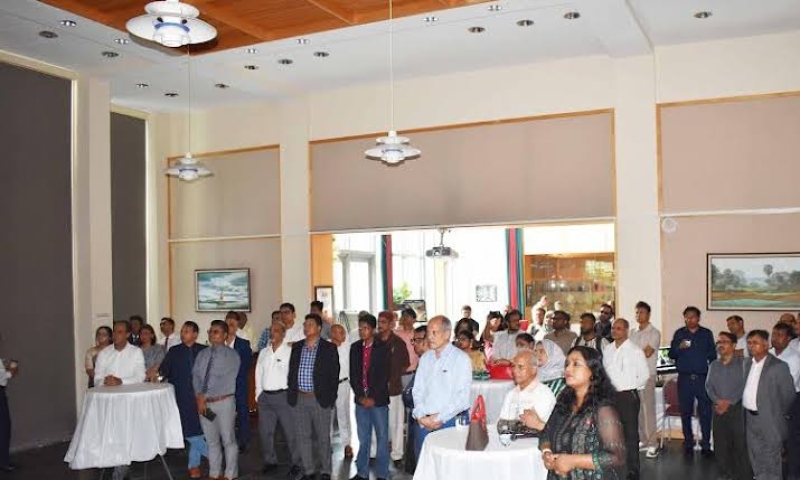- Puppet show enchants Children as Boi Mela comes alive on day 2 |
- DSCC Admin Salam’s drive to make South Dhaka a ‘clean city’ |
- 274 Taliban Dead, 55 Pakistan Troops Killed |
- Now 'open war' with Afghanistan after latest strikes |
- Dhaka's air quality fourth worst in world on Friday morning |
BD Embassy in Washington marks July Uprising anniversary

Bangladesh Embassy in Washington, DC on Friday observed the first anniversary of the historic July-August Uprising by hosting a commemorative event titled "July Beyond Borders."
Held at the auditorium of the Embassy, the event featured a special exhibition of posters and photographs highlighting key moments of the mass movement and the atrocities committed during that period, according to a press release received here today.
A documentary film on the massacre was also screened for attendees, it added.
Prominent members of the Bangladeshi diaspora, including individuals who actively supported the pro-democracy movement from abroad, attended the event and paid tribute to the martyrs by viewing archival footage and still images.
Officials and staff of the Embassy, along with expatriate Bangladeshis and professionals from various walks of life, were also present at the programme.
The July-August Uprising, marked by the unprecedented participation of students and citizens, played a pivotal role in restoring democratic values and upholding the people's rights in Bangladesh.
The movement led to the eventual fall of the then Hasina-led regime, which, according to reports, killed over 1,400 students and civilians before fleeing.
The uprising is widely regarded as a turning point in the Bangladesh's democratic struggle, ending a period of authoritarian rule through the sacrifice of hundreds of lives, reports BSS.

